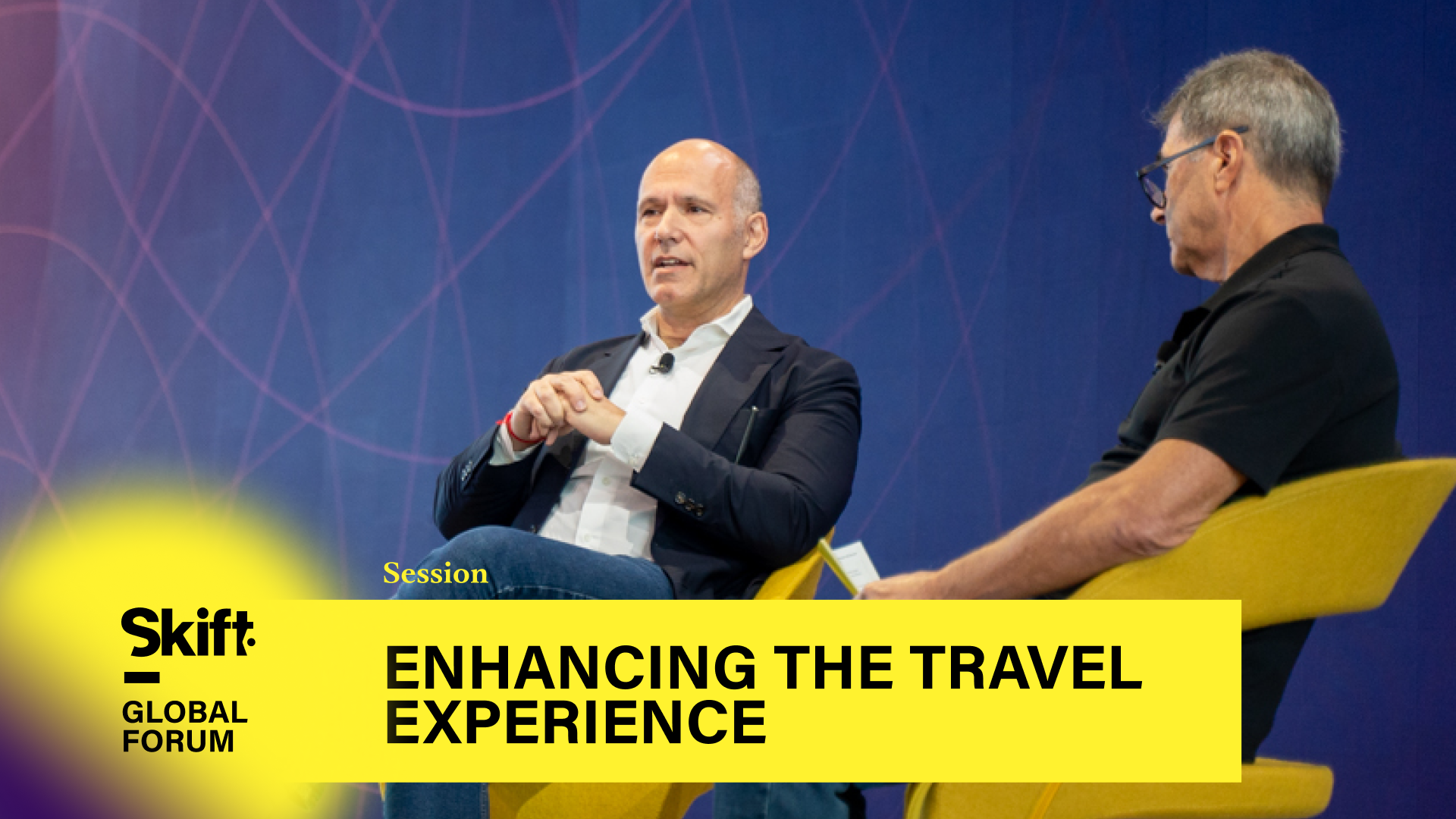Expedia CEO Peter Kern Explains Breakup With Hopper and AI Plans – Full Video

Skift Take
Expedia made a major move earlier this summer when it ended its relationship with online travel agency Hopper.
Expedia Group CEO Peter Kern explained the breakup at the Skift Global Forum in New York City. Kern also discussed Expedia's recently launched One Key loyalty program and its artificial intelligence-powered products with Skift Executive Editor Dennis Schaal.
Watch the full video, or read a transcript of it, below.
https://www.youtube.com/watch?v=UPKwocigEnQ Interview TranscriptDennis Schaal: Hey everybody, thank you for being here.
Peter Kern: Of course. Happy to be here.
Schaal: Great. Hey, so we were talking to Glenn Fogel of Booking.com, Booking Holdings an hour ago.
Kern: Never heard of him.
Schaal: Everybody seems to know everybody, so I'm a little suspicious about that.
Kern: Yeah.
Schaal: Anyway, oh, so we were talking about your statements that Agoda was the "worst rate abuser out there", and Peter said-
Kern: Glenn said.
Schaal: Peter. Glenn said, "oh, I think Peter woke up on the wrong side of the bed that day. I'll have to talk to him."
Kern: Could have been, it doesn't make it not true, but it might've been.
Schaal: So we were actually talking about wholesale rates back in the green room and how does that work? I mean, how do they get Agoda gets wholesale rates which aren't supposed to be sold to consumers, and yet there it is.
Kern: Yeah, well, it's not just Agoda, but there are many… Look wholesale rates, suppliers, hotel supply has long tradition in the wholesale business, which is a hard tradition to break. They put rates out into the world that are meant to be distributed to offline travel agents, various places that they are intended to go, specialized pockets of demand.
And then in the modern world, those rates get piped back to people like Agoda or other larger wholesale players. And by the way, we're probably the biggest player in wholesale. We distribute, we have preferred distribution deals with Marriott, IHG, and others, but we make sure the rates go where they're supposed to. There are a lot of people in the world-
Schaal: Packages.
Kern: Well lots of places, but to the right kinds of partners in the right parts of the world where they're intended. There are a lot of players in the world who just take that available inventory and pu

